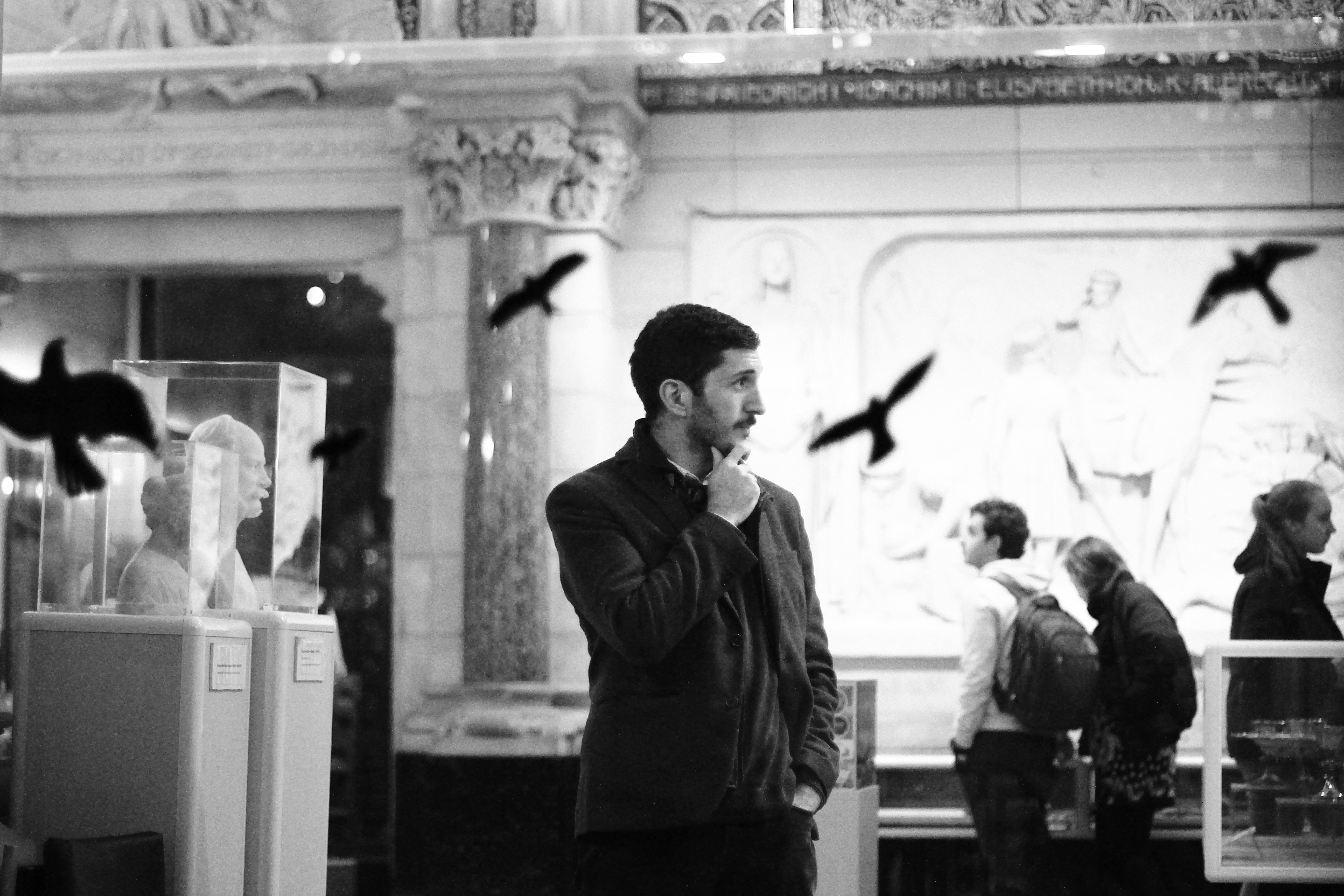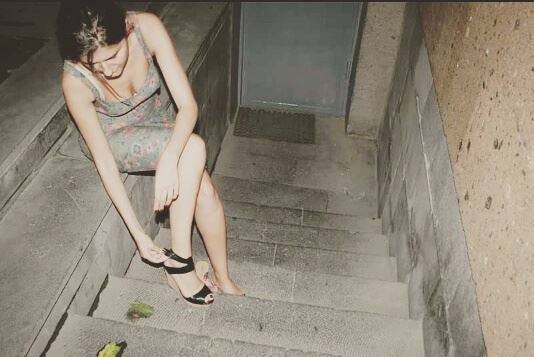How to Build a Capsule Wardrobe
April 16, 2019
Young and Punctual by Richard Elmoyan
April 20, 2019Music is an essential part of our life: it moves us, affects our mood, and can even treat health conditions. Although music is present throughout our lives in many ways, very few people consider becoming professional composers. What do we know about musical creativity? We had a very nice chat with Munich based Armenian composer Arsen Babajanyan. We talked about music, life and much more.
What kind of music do you listen to at home or in the car?
ARSEN: My musical preferences have clear distinctions. My favorite genres are classical, rock, jazz, funk, soul and all other genres that are related to these. My daily music consumption comes in various portions of these genres. There’s just one exception though, I don’t listen to classical music in the car. I’ll explain why - mostly for technical reasons. The dynamic contours play a big role in classical music. Unlike jazz or rock music, listening to classical music in the car can be challenging as in classical music the melody keeps rising and falling. You need to keep adjusting the volume all the time. Also, I don't like turning off the piece midway through, and classical music compositions are usually long.
Can you tell us about your family? Are you from a musical family?
ARSEN: My maternal grandfather is Sergey Danielyan, who was an opera singer and has performed as a leading tenor with Yerevan State Opera house for decades. His repertoire included roles that no one has performed at the Opera house except him, such as Wagner's Tannhauser, Stravinsky's King Edip, Bernstein's Toni, etc. But I have to confess that when I was contemplating on becoming a musician, my grandfather's profession did not affect my personal decision.
Are you self critical toward your own work?
ARSEN: Yes.
Has a certain melody stayed with you throughout your life?
ARSEN: It's not just a single melody. Just like in Proust's novel "In Search of Lost Time", the main character Svan goes through similar sentiments. It's worth mentioning that I experienced an emotional renaissance when I first discovered Queen's music. I was only 12 at that time and many doors "opened" to me. Such thorough revaluation of life events happened again when I had just turned 32 and recognized true love.
What do you play when you're alone?
ARSEN: Very often I improvise for myself. In general, improvisations are very similar to emotions. And despite all the similarities, they don't enter the same river twice.
What was the very last thing that inspired you?
ARSEN: When people ask this question to a creative individual, they mostly assume that only positive emotions and feelings inspire creativity. Nevertheless, deeply emotional and painful events, too, can become a trigger and produce great results. If I look at all the events in my personal life that have somehow affected my creative process from this angle, then every event has somehow mattered. However, if I try to answer the question differently and focus on the subject of my latest inspiration and admiration, then it would be "In Search of Lost Time" novel by Marcel Proust.

Photography: Mane Hovhannisyan
How do you take criticism?
ARSEN: I usually take criticism well. Of course, if it sprouts from honest intentions. Garegin Njdeh wrote in the preface of one of his books, that "criticism equals emotional suffering". This is not a matter of principle but something that rises from deep emotional pain or idealistic intentions. If we talk about personal criticism, I need to remember Karo Hayrapetyan's advice to his son, one of the best musicians in our city - Vahagn Hayrapetyan. He said, "When you hear criticism pay attention to who is it coming from and why are they saying it". The conversation during which Vahagn told me this happened a while ago, so I may be remembering it wrong. But it helped me a lot all these years. Objectively, I try to filter out of each criticism the best information that I can benefit from. I, personally, don't criticize people I am indifferent to.
Can you tell us about the education you acquired in Germany?
ARSEN: It's really not easy to talk about such a comprehensive subject during an interview. The theme gets even more complicated when we talk about composition as a subject in general because it's very subjective and often it may not even matter which country you live in and study. The education system is a completely different subject of conversation. Practically speaking, I should mention that you'd get much wider experience and practice when you study here. There's so much happening.
What is it like to live in Munich?
ARSEN: My sentiments towards Munich are not very clear until this day. It's a difficult question. I remember I was drunk and riding in a taxi one day, and I was talking to the driver about my mixed feelings about Munich. I think I did a pretty good job then, but unfortunately, I can't remember any of it.
Favorite composers?
ARSEN: I only listen to the greatest works of art and as I listen to music I get immersed in the composition completely and so my favorite composer is the one, whose work I am listening to at that moment.
Do you have a favorite spot in Yerevan?
ARSEN: Honestly, unlike a lot of my friends, I can't get used to the current look of Yerevan, and how a few thugs defaced our city driven by their own greed. Occasionally, my disappointment turns into mourning when I understand what an amazing and unique city we have lost. Nevertheless, I have a few favorite spots in the city, which I prefer to keep to myself.
Where do you prefer to compose?
ARSEN: In the past, I believed that I couldn't compose anywhere else outside my room in our Yerevan apartment. But when my parents decided to renovate the apartment, I had to look for new spaces for creative flow. Once I moved out of Armenia that need became less important. I can create in any space that provides minimal necessities. But I always have the vision of my dream working space in my mind.
Contemporary Armenian music - who do you listen to?
ARSEN: From the new generation of composers I listen to Vahram Sargsyan, Arman Ghushchyan, Aram Hovhannisyan, Hovik Sardaryan, Ruben Antonyan, Artur Avanesov, Artur Aqshelyan, Sergey Umroyan, and others.
Any suggestions to composers who are just getting in the field?
ARSEN: I can advise them to work hard, but not to do it purposelessly. In general, it doesn't make sense to choose a career just because you haven't found yourself in any other field and you'll most probably leave this one too, soon after you get married. In this case, you'd be better off by choosing the career of a programmer. At least it pays well.
Have you had any regrets about choosing your profession?
ARSEN: I must confess, that in the past I went through stages that I felt like leaving composition. But never regretted choosing this vocation and never will.
Do you have any hobbies and interests?
ARSEN: To be honest with you I have a hard time understanding what hobbies are. Anything I do is a vital part of my life. I love all of my interests and don't treat them as hobbies. Recently I was told, that not everything is white or black in love, but I think if one loves something or someone, all is getting clear. For example, I love literature and labeling reading as a hobby would be dishonorable. My soul thrives when I read a book. The books I read become a part of my inner world. Of course, I know there are people who read a little bit to kill time. The entertaining literature is specifically aimed for this group: people who exchange own emptiness with the emptiness of others. In general, this is the disease of our age: every means are justified in the fight against boredom. Some people treat relationships like a hobby. They are ready to jump into any relationship just to escape loneliness.
How would your friends characterize you?
ARSEN: Some of my close friends have mentioned that I am an egoist. But when quite concerned about this, I approached my even closer friends whether they consider me an egoist or not, they insisted that I was the last person in their circles that they would describe as an egoist. So, I don't know.
How do you see yourself?
ARSEN: I have creative egoism and that's useless to hide. I am egoistic in my work, and the hours I spend composing and I consider it absolutely normal.
What's the favorite piece you have composed so far?
ARSEN: Hahaha, not saying.

Cosmic Blonde (Esther Budaghyan) is a fashion designer and lifestyle catcher, who writes about her favorite people and places in Yerevan. Show her your love and get a chance to be featured.



